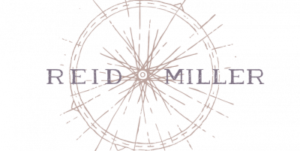Entrepreneurial Assistance Helping Reid Miller Apparel Move Forward
 While living in Durham, North Carolina, Reid Miller rode her bicycle to work. When shopping for clothes, she found it difficult to find womenswear that fit both her and her active professional lifestyle.
While living in Durham, North Carolina, Reid Miller rode her bicycle to work. When shopping for clothes, she found it difficult to find womenswear that fit both her and her active professional lifestyle.
In 2015, she began to turn her frustration into the idea of creating staple components of a wardrobe she and other active professional women could bike to work in. In July of that year, Reid launched a Kickstarter to produce three high-quality garments: a Harris Tweed blazer called “The Riding Jacket,” a merino wool waffle knit sweater, and The Riding Denim.
The Kickstarter failed, but Reid pressed on with her vision. Conversations with more than 100 women helped her realize that her clothing idea didn’t appeal only to biking women. All the women she spoke with expressed a desire to find high quality, functional garments they could work in.
She also found that nearly every woman asked the same question about the clothing she was setting out to produce.
“Almost all of them asked, ‘Will they fit me?’” Reid said. “Women struggle mightily with fit.”
That question helped Reid to refine her business model to include a made-to-measure component. “Made-to-measure is common in menswear but nearly absent in the womenswear market,” she said. “We really aren’t offered custom fitting options.”
In 2017, Reid identified sewing, digital patternmaking, and computerized cutting partners to test out technology-enabled, U.S.-made, made-to-measure womenswear production strategies. She also launched an iFundWomen campaign to raise money for testing the production process. That campaign was a success.
The following year, Reid did a test production of her made-to-measure Riding Jacket. She says she learned some valuable lessons.
“First, quality control is extremely important, and challenging, with made-to-measure garment production,” she said. “Sewing and made-to-measure patternmaking need to be under the same roof for quick iterations and to keep high-quality standards.”
“Second, a tailored blazer is too complex for testing a made-to-measure system. Lastly, computerized cutting and other garment-making technologies offer some promising efficiencies that can free up dollars that can be redirected to professional sewers.”
 In the winter of 2019, Reid found a home for her work in Princeton, a place that she calls a “hub of creative energy nestled in the mountains of southeastern West Virginia and hungry for jobs.”
In the winter of 2019, Reid found a home for her work in Princeton, a place that she calls a “hub of creative energy nestled in the mountains of southeastern West Virginia and hungry for jobs.”
Later that year, she partnered with CART, where she found the technology and technical expertise she needed for her made-to-measure testing. With CART’s technical assistance and business planning support, Reid began to build the foundation for her 100 Blouses project, a proof-of-concept product to produce made-to-measure womenswear and create local jobs around her Women’s Workshirt design. In Fall 2020, Reid finalized the Women’s Workshirt and began testing her made-to-measure blouse with her first client, dye master and artist AnneTilly.
 Reid said the support she has received through CART and the TechWrxWV program has been instrumental in helping her move her company forward. It also aligns with her larger goal to help make a difference in her community.
Reid said the support she has received through CART and the TechWrxWV program has been instrumental in helping her move her company forward. It also aligns with her larger goal to help make a difference in her community.
“CART Inc. believes in the work I’m doing, and they want to help,” she said. “And they are. For them, innovation means problem-solving with different tools, including electronics and technology, to improve upon or create a new type of physical product. And one of their goals is to help businesses create prosperity in the region. Not just more profits, or money for taxes, but jobs as well.”
